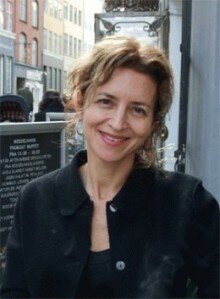
Amanda Hammar, who was born and educated in Zimbabwe, is now a Professor at the Centre for African Studies at the University of Copenhagen. Widely published as an academic, she is currently editing a volume entitled Displacement Economies in Africa: Paradoxes of Crisis and Creativity (forthcoming with Zed Press and Nordic Africa Institute). Amanda has, however, always written poetry, and her first poems were published in a collection edited by Zimbabwe Women Writers in 1990. Previously published by Poetry International (Issue 23) she also had work selected for No Serenity Here (eds Kaiyu Xiao, Isabel Ferrin-Aguirre and Phillippa Yaa de Villiers).
Hammar left the country for her first university studies at Sussex University in Britain in the late 1970s, returning to Zimbabwe soon after independence and starting her first job as a planning officer in one of the ministries of the newly independent government in 1983. She spent much of the 1980s and 1990s working in Zimbabwe’s public sector on different aspects of rural development and local government reform. She continued her education back in Britain in 1990/91, undertaking a Masters degree at the London School of Economics. She returned to Zimbabwe again to work, and then in 1997 left for Denmark to begin studying for a PhD in International Development Studies. Her doctoral work and much of her subsequent research and publications have been linked directly to changing conditions in post-independence Zimbabwe. While studying, living and working mostly in Scandinavia since the late 1990s, she has remained closely bound to Zimbabwe emotionally, socially, politically, intellectually and creatively.
She has always written: especially journals and poetry. As she noted many years ago, “I write to survive”. Equally, she regards reading poetry on a regular basis as essential to her well-being, and cites among her favourite poets Sharon Olds, Amos Oz, Adrienne Rich, Derek Walcott and South African poet Gabeba Baderoon. At different times during the first two post-independence decades, she was involved in various forms of writing and performing political and cultural street theatre, as well as being one of the founding members in 1990 of Zimbabwe Women Writers. Yet she has mostly kept her creative writing to herself, rarely sharing her poetry even with close friends. However, the start – and intensification – of the Zimbabwe crisis since 2000 generated a certain urgency in wanting to share her thoughts and feelings with others; not only in terms of a shared witnessing of the unfolding dramas of Zimbabwe, but also of life’s bigger and smaller uncertainties more generally.

